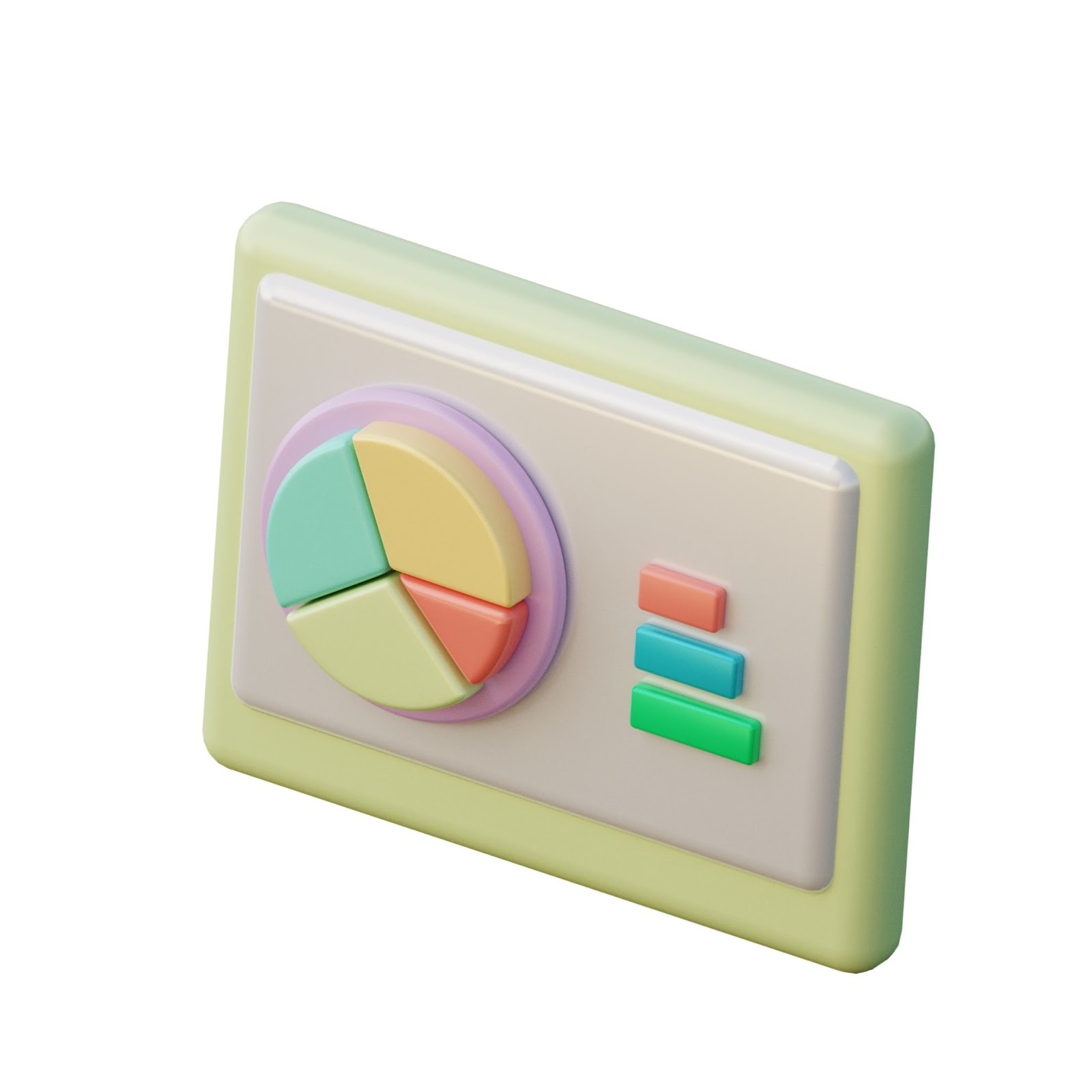Marketing Analytics
Ever wondered how top brands seem to know exactly what you want? Welcome to the world of Marketing Analytics – the behind-the-scenes hero of successful marketing campaigns. It’s more than just crunching numbers; it’s about understanding the story they tell about consumer behaviors, preferences, and trends.
This blog invites you into the heart of Marketing Analytics, where data-driven decisions lead to standout marketing strategies. Whether you’re a marketing maven or a newbie eager to learn, we’ll guide you through the ins and outs of leveraging analytics to connect with your audience in meaningful ways.
What is Marketing Analytics?
Marketing Analytics is an integral part of modern business strategy, acting as the linchpin that connects data with decision-making. It involves the systematic analysis of data related to marketing efforts, encompassing everything from customer engagement metrics on social media to conversion rates on digital ads.
By sifting through this data, Marketing Analytics helps businesses unravel the complexities of customer behavior, market trends, and the effectiveness of marketing campaigns. It’s a blend of technology, statistical methods, and business acumen, aimed at extracting actionable insights from raw data.
These insights enable companies to tailor their marketing strategies to be more customer-centric, efficient, and effective. With the power of Marketing Analytics, businesses can not only gauge the performance of their past and current marketing activities but also forecast future trends, making it an indispensable tool for sustaining and growing in today’s competitive market landscape.

The Importance of Marketing Analytics
The benefits of Marketing Analytics cannot be overstated. It transcends traditional marketing by providing a data-driven foundation for decision-making, which is crucial for several reasons:
- Data-Driven Decisions: With the insights derived from Marketing Analytics, businesses can make informed decisions that are backed by data, reducing the reliance on intuition and guesswork.
- Resource Optimization: It helps in allocating marketing resources more effectively, ensuring that investment in marketing channels and campaigns delivers the best possible ROI.
- Customer Insights: Marketing Analytics offers deep insights into customer behavior and preferences, allowing businesses to tailor their products, services, and communications to meet the needs and expectations of their target audience more precisely.
- Performance Tracking: It enables the continuous monitoring of marketing efforts, providing a clear view of what strategies are working and which areas need improvement.
- Competitive Advantage: In a crowded market, businesses that leverage Marketing Analytics gain a competitive edge by being able to quickly adapt to market changes and customer demands.
- Future Forecasting: Advanced analytics techniques allow businesses to predict future market trends and customer behaviors, enabling proactive strategy adjustments.
How Organizations Use Marketing Analytics?
Organizations across the globe are increasingly relying on Marketing Analytics to steer their marketing strategies with precision and insight.
Product Intelligence
This involves a deep dive into how products perform in the market, gauging customer reactions, and understanding competitive positioning. Analytics can highlight which features are resonating with the audience, areas for enhancement, and opportunities for innovation.
Customer Trends and Preferences
By analyzing data on customer interactions, purchases, and feedback, companies can uncover emerging trends and shifting preferences. This allows for more personalized marketing efforts that speak directly to the desires and needs of the consumer base.
Product Development Trends
Staying ahead of market trends is crucial for product development. Marketing Analytics helps identify these trends early on, guiding the development of new products or the iteration of existing ones to meet future customer needs.
Customer Support
Insights from Marketing Analytics can significantly improve customer support by identifying common issues, optimizing support channels, and personalizing customer interactions to enhance satisfaction and loyalty.
Messaging and Media
Determining the most effective messaging and the best channels for reaching target audiences is made easier with Marketing Analytics. It guides the creation of content that resonates and the selection of media that best delivers that content to the intended audience.
Competition
A comprehensive understanding of the competitive landscape is key to standing out. Analytics provide insights into competitors’ strategies, strengths, and weaknesses, highlighting opportunities for differentiation.
Read Social Listening Insights: Crafting Accurate Audience Personas
Predict Future Results with Marketing Analytics

The predictive power of Marketing Analytics transforms it from a tool for reflection into a forward-looking instrument that can anticipate market dynamics and consumer behavior. This predictive capability is essential for several reasons:
- Anticipate Market Changes: By analyzing trends and patterns, businesses can forecast market shifts, preparing in advance to meet new demands or counter potential challenges.
- Customer Behavior Prediction: Understanding future customer behavior allows companies to tailor their offerings and marketing messages, ensuring relevance and engagement.
- Optimize Future Campaigns: Insights into what has worked in the past and predictive models of future trends enable the optimization of marketing campaigns for better outcomes.
- Risk Management: Predictive analytics can also help in identifying potential risks in marketing strategies, allowing businesses to mitigate them before they impact the bottom line.
- Innovation and Growth: By foreseeing future trends, businesses can innovate proactively, developing new products or services that meet emerging customer needs, driving growth and competitiveness.
What is Marketing Analytics Software Used For?
Marketing Analytics software is an essential tool for businesses aiming to harness the power of data in their marketing strategies. It serves a multitude of purposes:
- Comprehensive Data Analysis: These platforms aggregate data from various sources, providing a holistic view of marketing performance across all channels and campaigns.
- Real-Time Insights: With the capability to monitor activities as they happen, marketers can make immediate adjustments to campaigns, enhancing responsiveness and agility in strategy execution.
- Customer Segmentation and Targeting: By analyzing customer data, these tools help in identifying distinct customer segments, enabling more personalized and effective marketing approaches.
- ROI Measurement and Optimization: Understanding the return on investment for various marketing initiatives allows businesses to allocate resources more efficiently, focusing on high-performing channels and strategies.
- Predictive Analytics: Advanced analytics software can forecast future trends, customer behaviors, and campaign outcomes, providing a strategic advantage in planning.
- Enhanced Decision-Making: Armed with data-driven insights, marketers can make informed decisions that align closely with business objectives and customer needs.
Read Social Listening Unveiled: Your Must-Know FAQs Explained
Marketing Analytics Software – Features & Capabilities
The functionality of Marketing Analytics software spans a wide range of features, each designed to provide deeper insights and more effective marketing management:
- Data Integration and Management: These tools can integrate data from disparate sources, ensuring a unified and comprehensive dataset for analysis.
- Advanced Analytics and Visualization: With sophisticated analytical models and intuitive visualization capabilities, users can easily interpret complex data and identify actionable insights.
- Campaign Tracking and Performance Monitoring: Track the effectiveness of marketing campaigns in real-time, allowing for timely adjustments and optimization.
- Customer Journey Mapping: Understanding the customer journey from initial contact through to conversion, providing insights into key touchpoints and opportunities for engagement.
- A/B Testing and Experimentation: Facilitate testing of different marketing messages, channels, and strategies to determine the most effective approach.
- Social Media and Sentiment Analysis: Analyze social media interactions and sentiment to gauge brand perception and identify emerging trends or issues.
- Automated Reporting and Alerts: Customizable reporting features and automated alerts ensure stakeholders are kept informed of key metrics and anomalies.
How to Start the Marketing Analytics Process?
Going on the Marketing Analytics journey is akin to setting sail in the vast ocean of data, with the aim of navigating towards clearer, more informed marketing decisions.
This process begins with a foundational understanding of your goals and a clear plan for reaching them. By tapping into the benefits of marketing analytics, you’re not just collecting data; you’re paving the way for transformative insights that can elevate your marketing strategies to new heights.
1. Understand What You Want to Measure
The first step is crystallizing what exactly you hope to achieve with Marketing Analytics. Are you looking to increase customer engagement, boost sales, or improve the efficiency of your marketing campaigns? Identifying specific goals allows you to focus on relevant data and metrics, thereby maximizing the benefits of marketing analytics.
This clarity ensures that your analytics efforts are aligned with your business objectives, making every piece of data you collect meaningful and actionable.
2. Establish a Benchmark
Before you can measure improvement, you need to know your starting point. Establishing a benchmark involves taking stock of your current performance across key metrics. This could include conversion rates, website traffic, or social media engagement levels.
By setting these benchmarks, you’re creating a baseline to measure future growth against, highlighting the importance of Marketing Analytics in tracking progress and identifying areas for improvement.
3. Assess Your Current Capabilities
A thorough assessment of your existing tools, skills, and processes is crucial. This step is about understanding the resources at your disposal and identifying any gaps that need to be filled. Do you have the right tools to collect and analyze data?
Does your team possess the necessary analytical skills? An honest evaluation of your current capabilities will guide you in fortifying your analytics framework, ensuring you’re well-equipped to harness the full benefits of marketing analytics.
4. Deploy a Marketing Analytics Tool
Choosing and implementing the right Marketing Analytics tool is pivotal. The ideal tool should not only integrate seamlessly with your existing systems but also be scalable to grow with your business. It should provide the functionalities you need to collect, analyze, and interpret data, turning raw numbers into actionable insights.
Deploying a robust analytics tool is a significant step towards leveraging the comprehensive benefits of marketing analytics, enabling you to make data-driven decisions with confidence.
Conclusion
Marketing Analytics equips you with a strategic lens through which to view your marketing efforts, transforming raw data into a roadmap for decision-making. This approach not only refines your strategies but also aligns them more closely with business objectives and market demands.
As we conclude, remember that the essence of Marketing Analytics lies in its capacity to inform and guide your marketing initiatives, ensuring they are both effective and aligned with your overarching goals. With this analytical approach, you are well-prepared to manage the complexities of the marketing landscape with professionalism and insight.






























